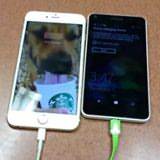Android Data Recovery
Must-Get Tricks to Speed Up Mac OS X
-- Friday, April 07, 2017
This article would talk about the two main reasons: OS System problem and Mac Hard Drive problems in details that may cause your Mac running slowly. Please continue to read and try to fix the Mac running slowly down problem.
Part 1: Speed Up Mac: Fix OS System Problem
The most probably reason why your Mac slows down can be the OS system problem. In this way, fixing it should be taken into the agenda. Below are some tips to make your Mac running faster:Solution 1 Upgrade MacOS
It is known that Apple would release the new macOS from time to time, which contains advanced features and could run faster when compared with the early version. If your Mac is running Yosemite, El Capitan or even Mavericks, it time to have a try to upgrade it to Sierra, which is completely free to download.
Solution 2 Keep Firmware Up-to-date
Outdated or incorrect firmware may cause some running issues on your Mac. Fortunately, the firmware updates would be supported and you can simply go to "Apple menu > Software Update" on your Mac to keep your firmware up-to-date.
Solution 3 Rebuild Spotlight Index
The Spotlight feature on Mac can help users to quickly find out the wanted contents. However, when it indexes the files, it can slow down your Macintosh. In this way, if you can go for the data easily, you don't need to use the Spotlight feature to index it. Besides, when your Spotlight can not search the result properly, or not show up Spotlight's search results, rebuilding Spotlight index may help.
Now, let's see how to rebuild the Spotlight index on Mac OS X:
1. Choose Apple "menu > System Preferences > Spotlight > Privacy".
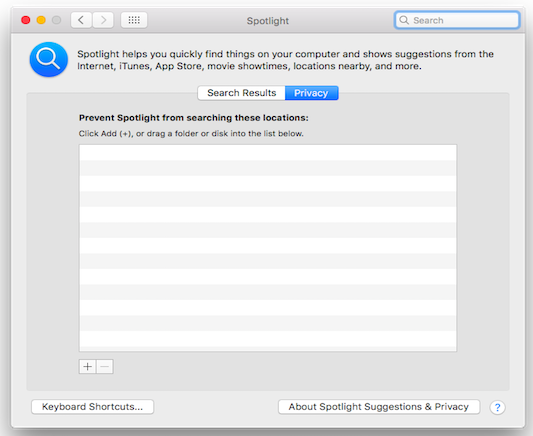
2. Drag Macintosh HD (and other drives if necessary) to the list of locations that Spotlight is prevented from searching.
3. From the same list of locations, select the disk that you just added and click the Remove (–) button to remove it from the list.
4. Quit System Preferences and the job is done!
Solution 4 Fixing Corrupt Preference Files
Broken Preferences files may be the cause for the situation that program that won't open, or one that crashes frequently. Now let's check out how to fix the broken Preferences files problem briefly:
1. Find out the corrupt Preference files from "Finder > Library > Preferences" on your Mac.
Note: If you want find out the broken Preference files for the specify application, you can refer to "com.[name of the software vendor].[name of the application].plist" (the Preference files would be named in this manner).
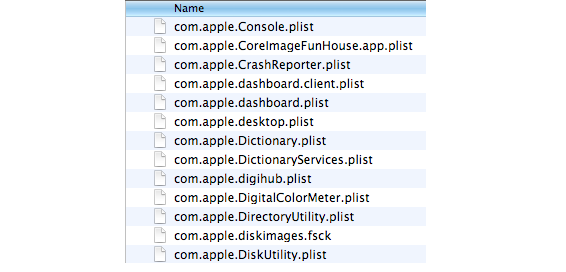
2. Simply delete it. And when you launch the app next time, it would rebuild a default version of that file.
Part 2: Speed Up Mac: Fix Mac Hard Drive Problem
Mac runs slowly down for a variety of reasons. The hard drive problem can be one of them that you should never ignore. Normally, the hard drive problem can contains crashed HDD and the limited storage space. For the hardware, I think you need to replace it with a new one that can work well. But for the lack of storage space, you can try to solve it by cleaning your Mac up.Now I would recommend an effective program - CleanMyMac 3 to remove system junks or trash and then free up your Mac. Please check it out below.
Step 1 Download CleanMyMac 3 on Mac
First of all, please download and install the CleanMyMac 3 program on your Macintosh. After that, launch it and you are able to see a iMac logo on upper right corner of your computer, which means that your Mac has been monitored by the program.


Step 2 Scan Useless Files
On the interface of the program, you can see the Smart Cleanup and Cleaning options. The two features can help to free up the hard drive for you safely and you are recommended to try both of them.
Select "Smart Cleanup" or "Cleaning" option and then click on "Scan" button. Then the program would start to scan the junk files for you automatically.
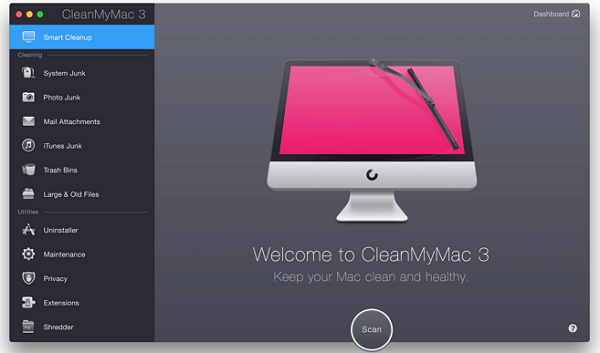
Step 3 Remove Junks and Free Up Mac
Once the scanning is complete, please click on the "Clean" button on the center bottom of the interface. And for "Cleaning" you can also preview the useless files before clean them up.
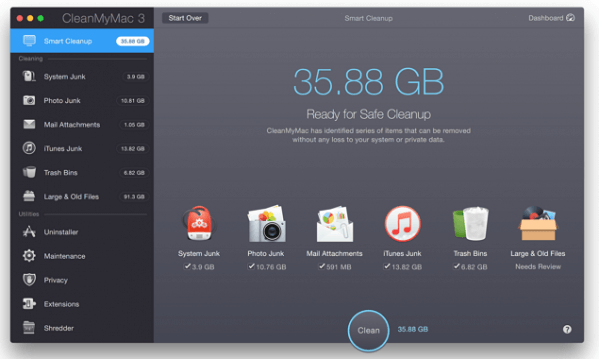
Of course this article could not list all the probably problem that may cause your Mac slowly down problem as the reasons are various. But if you get any new ideas, please drop us a comment below.















